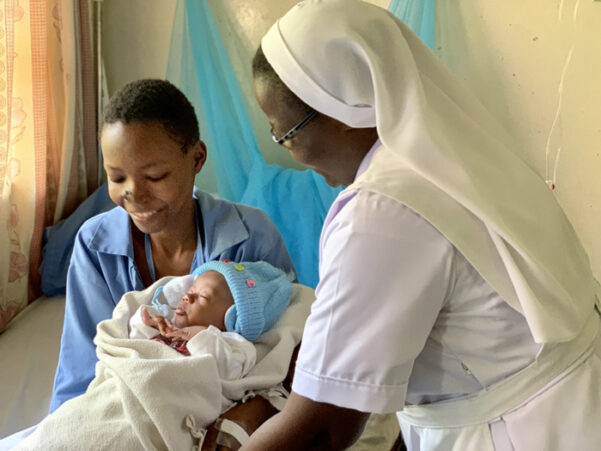International development NGOs generally originated from the middle of the last century, but public support for faith-based and missionary organisations dates back centuries and they often laid the foundations for the work of secular agencies, something that is often forgotten.
The Catholic Church was a pioneer in development infrastructure with 1822 being a significant year. That was when the first Pontifical Mission Society was founded by a visionary French woman, Pauline Jaricot, who is often remembered during Mission Month in October each year. The Catholic Church globally is the second largest aid donor after the United Nations, working sometimes in countries where even the UN has withdrawn its workers because of the risks. It is the most significant civil society organisation in the world.
In addition to religious services, the unique contribution of Catholic organisations to global society is illustrated by a complex structure that provides 5,245 hospitals, 14,963 clinics and dispensaries, 15,429 homes for the elderly, 72,667 kindergartens, 98,925 primary schools, 49,552 secondary schools,1,358 universities, 3,137 education or re-education centres, 10,362 marriage counselling centres, and 34,291 other institutions. These global figures are a powerful witness to the strength of the Church’s missionary work.
In many parts of Africa, the Catholic Church provides up to 70pc of services in education and health, e.g. about 40pc of the services for HIV / AIDS are provided by the church. I have seen first-hand how these facilities are sought out by people of differing religions and none because of the reputation of the quality they deliver.
Even today in Ireland, 25pc of acute hospital care and 66pc of special needs services are provided by faith-based organisations. That demonstrates the huge dependency society in many countries, especially in the developing world, has on these organisations. A huge vacuum would arise if they were to withdraw from service provision.
The 1967 encyclical of Pope Paul VI – Populorum Progressio – not only contributed to the new concept of development in Catholic Social Teaching and developed the Church’s preferential option for the poor, but it helped spur the growth of social and foreign aid agencies, e.g. Concern Worldwide and Trócaire, to combat poverty and social exclusion, and to support development programmes in the Global South. It is well recognised that Ireland’s overseas aid programme launched in 1974 was based on the decades-long work of Irish missionaries.
In 2017, research conducted for Misean Cara identified five key features which, when taken in combination, describe a way of doing development work that has been unique to Catholic missionaries. These features are: crossing boundaries; a long-term commitment; personal witness; prophetic vision; and a holistic approach covering the social, economic, environmental, cultural and spiritual dimensions of life.
The core principles underpinning faith-inspired development are human dignity, social justice, option for the poor, solidarity and care of creation. The values that flow from these principles are respect, justice, commitment, compassion and integrity.
Our missionaries do development work through living in solidarity with a community, getting to understand in a personal way the challenges people face, and then working together to find lasting solutions. Their Christian faith enables them to respect and affirm the dignity of each individual as a person with needs but also with experience and skills that can be harnessed in devising and implementing sustainable solutions. They understand the principle: give a man a fish and you feed him for a day, teach him how to fish and you feed him for life.
In genuine faith-based organisations, faith is crucial to organisational identity, informing present and future direction, external programmes and internal organisational behaviour. Faith is integrated into organisational culture. It is active in defining development and subsequently plays an important role in programme design and implementation. However, programmes will not necessarily reveal the ‘uniquely religious nature’ of an FBO. Research has found that the impact of faith does not have to be explicit to be relevant.
In my recently launched book – The Theology of Integral Human Development: the role of faith in international development and public affairs – I elaborate and explore these issues in considerable detail. The book can be purchased online at www.buythebook.ie or www.lettertecbookstore.com
















